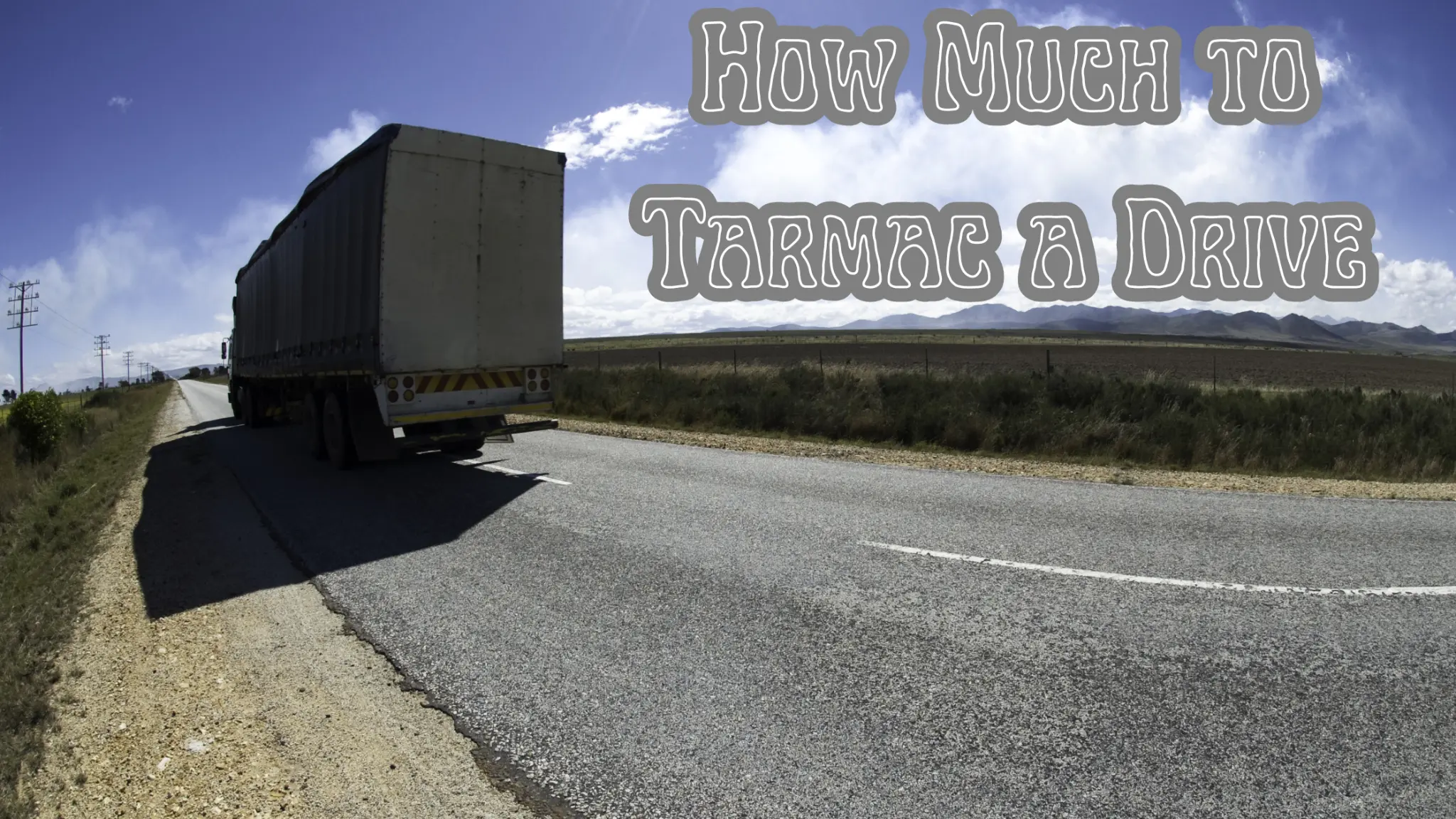How Much to Tarmac a Drive
Introduction
Tarmacking of a driveway is common since it is strong, and also looks good as it has been designed. The cost of tarmacing a drive can highly depend on the size of the drive, and it also can depend on the cost of the tarmac and if more preparation work is needed. This article shall endeavour to give the reader a run-down of how much it costs to tarmac a drive, factors that might affect the cost and ways you may use to get the best deal.

Factors Influencing the Cost
Size and Shape of the Driveway
When it comes to tarmacing a driveway, the nature, size and shape of the particular driveway in question greatly influence the final cost of tarmacking. The expanses increase with size because it entails the use of more material and work during construction.
Small Driveways
This is because a small driveway entails a smaller quantity of material and human resources needed, hence costing less. Such projects usually fall within a bracket of £1,000 to £2,000 in Blenheim. Another aspect is that simple geometric shapes of small driveways also imply that there will be less time and energy spent on preparation, including tarmacking.
Medium Driveways
Small and large sizes are less common and are likely to cost more, while moderate-sized, which is more common, will have moderate costs. They can be announced with material and labour costs within the £2,000 and £4,000 range. These driveways can be slightly more curvy and less straight hence may cost more to construct.
Large Driveways
Driveways that require tarmacking require a large surface to cover and much manpower; this means that very large driveways are very expensive to tarmac. The cost of large driveways is between 4000-8000£. Besides, worth mentioning that the more detailed patterns and forms are drawn, they will add to the final cost of the item because of the time-consuming work.
Type of Tarmac
The type of tarmac also influences the cost and there is always that cheap one, medium quality one, as well as the expensive one. In this case, various tarmacs can be installed and each has different costs and lifespan.
Hot Mix Tarmac
It is commonly understood that hot mix tarmac has a fairly high stock and good lasting qualities. It is relatively costlier than other types and, therefore, well suited for the areas that experience a lot of traffic. The price that clients are charged for the product is justified by the reliability and durability of the material.
Cold Mix Tarmac
Cold-lay tarmac is practical and cheaper to work with, which explains why it is ideal for small or even temporary patches. It is not as long-lasting as hot mix tarmac and that is why costs are somewhat lower as well.
Preparation Work
The contribution that the tarmac drive will have on the overall longevity depends on careful preparation. The preparation work cost may also differ depending on the current state of the driveway and the measures that need to be taken for the strong base creation.
Excavation and Removal
Surcharges such as these, like demolishing the previous surfaces and excavating the ground will also increase the cost. This stage is critical to laying the groundwork and is usually a few hundred to over a thousand dollars of cost depending on the size of the current driveway to be paved.
Base Preparation
Adequate preparation is vital to achieve proper tarmac installation and guarantee the structure’s long life. Such aspects as laying of sand, gravel and other sub-base materials could also raise the cost more.
Edging and Drainage
Other costs include the installation of proper edging and the provision of drainage systems. Although these are extra costs, the integrity of the driveway cannot be compromised. These elements play a role in reducing water seepage and, in turn, increase the lifespan of the tarmac used.
Breakdown of Costs
Material Costs
Tarmac Material
Depending on the type of tarmac material, the cost differs from one another. Cold mix tarmac is much cheaper although its durability is much lower compared to the hot mix tarmac.
Additional Materials
Other materials required some extra fill, sand, grave, and base course for building up a strong foundation. These costs can pile on if one requires a large area to be paved for their driveway, for instance.
Labour Costs
Hourly Rates
The salary expenses have also influenced overall expenses since people’s compensation takes a large portion of an organisation’s budget. The general hourly wage expense is different relative to the contractor and place. In general, it is observed that the cost of labour constitutes the largest proportion of the total cost.
Regional Variations
These costs depend on the location in that some places have higher wages than others. Labour costs are usually higher in urban centres than in the rural zones because living costs are high and the demand for services is also high.
Average Costs
Small Driveways
Small driveway costs can roughly be between £1,000 and £2,000. The last preparation work, such as base tarmacking, accompanies this.
Medium Driveways
More often than not, medium driveway installations go for anything between £2,000 and £4,000. This price includes slightly more preparation work and higher quality tarmac stripped of any additives.
Large Driveways
Large driveways are the most expensive, with costs ranging from £4,000 to £8,000. These prices include extensive preparation work, high-quality tarmac, and additional features.




Post Comment